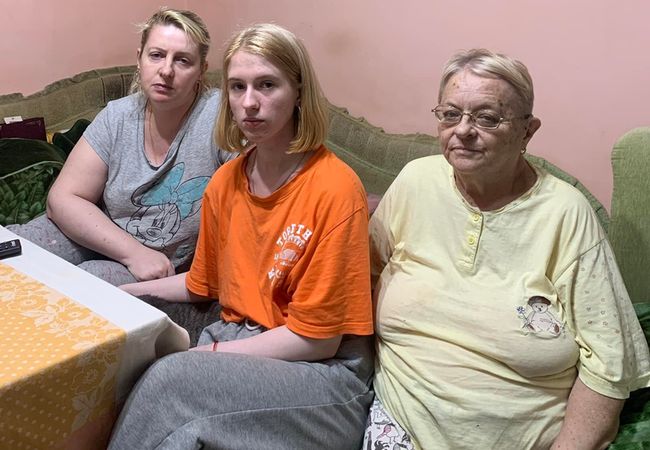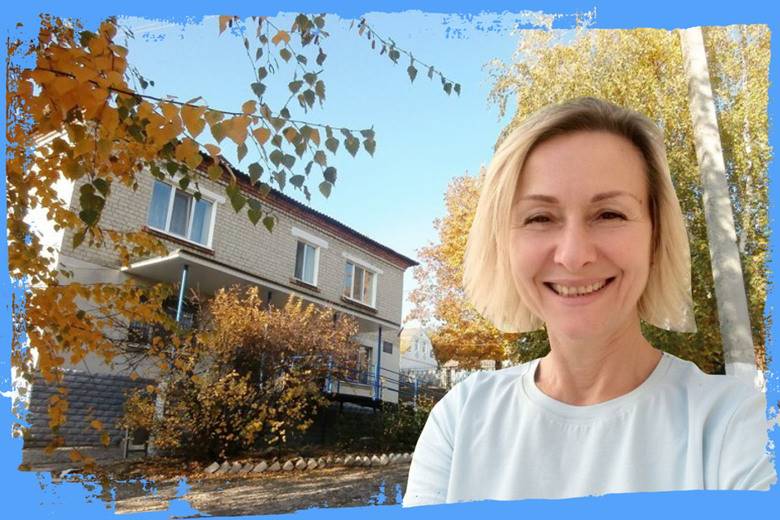
Olga Gunya remained in the occupation together with 150 patients of her psycho-neurological institution
Olga Gunya is an honored doctor of Ukraine. The woman spent six months in occupation with 150 patients of her psycho-neurological institution. Olga had the opportunity to evacuate - however, she did not leave her wards until she waited for the liberation of the city and was able to evacuate them all. Despite the bombing, the threat of hunger and infectious diseases.
Olga Gunya, a doctor at the Kupyansk psycho-neurological institution, told how her institution survived six months of occupation and why it is sometimes worth showing the middle finger to the occupiers.
Olya, we are being bombed
Olga's working day starts exactly at seven in the morning. When she goes to work on February 24, she does not yet know that the next six months will see the disappearance of light, communication, water and gas, lack of products, hygiene products and medicines for all patients. She does not know what she will hide them during the bombings under the iron beds due to the lack of bomb shelters. And she has no idea that she will remain the only doctor for more than 150 people with mental disorders. For now, Olga keeps in her mind the morning call of her friend from Kharkiv, who said the terrible and unbelievable: "Olya, we are being bombed."

Kupyan psycho-neurological institution
The woman has been working at the Kupyan psycho-neurological institution for 22 years. Her institution is of an open type, although since Soviet times, all similar psycho-neurological institutions are still considered closed. No scary stories about mockery of patients or straitjackets - patients whose health condition and diagnosis allowed, could even walk around the city.
Since childhood, Olga treated all her dolls and generously anointed her girlfriends with green tea. After graduating as a neurologist and internships in hospitals, she tried to teach students, but quickly got bored - she likes to teach others, but found her vocation only in practice.
Her patients are a bit like children. After the morning medical round, there is always a "psychological hour", when all her "adults" come running with their complaints about each other and demands for a fair trial. Olga loves them, each in her own way. She remembers how she came here as a young doctor and asserted her authority - it was important to maintain a balance with people with mental disorders. Show that they need it, find a common language, but do not engage in manipulation or intimidation.
A bpsycho-neurological institution is both a hospital and not only a hospital. Some of the patients have lived here for years. And they need friends, like everyone else. Olga became such a friend for them. Someone offended someone - to upset the situation. Sit down together and talk about the behavior of the parties. To calm. To weld. To hug. Medicines and treatment are far from all her work in these walls. Out of 125 people, there are only twenty men here, all the rest are girls from 18 years old.
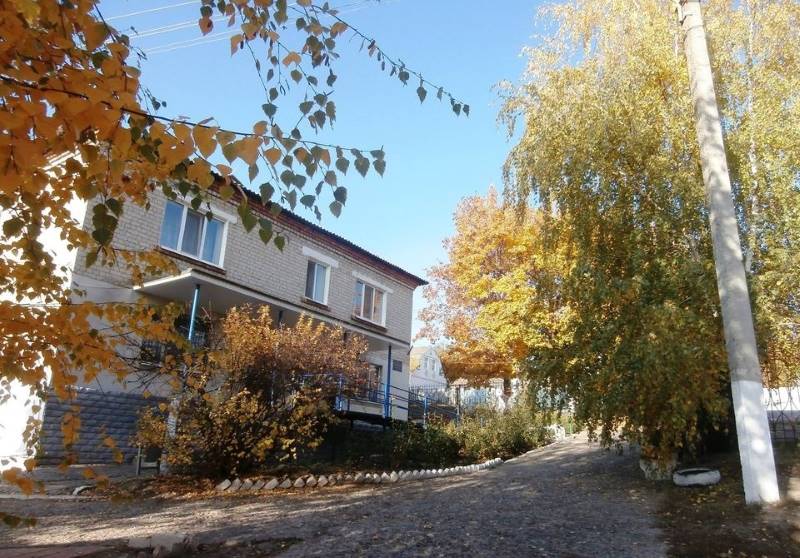
Psycho-neurological institution in autumn
The beginning of the war
On the 24th, the city was silent, as if curled up in anticipation of something terrible - and already in the evening the first explosions were heard.
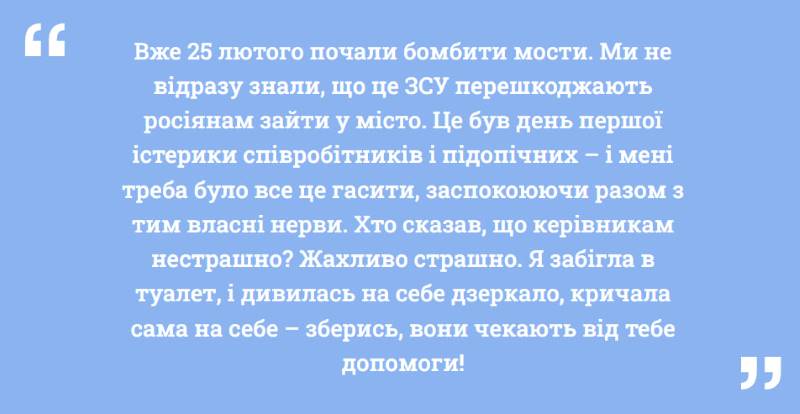
After the explosion, Olga quickly pulled herself together and picked up a supply of valerian - when all the patients and staff received their drops, the woman applied the sedative to herself as well. She hugged each of her patients - even those of them who avoided any physical contact all the time were hugged.
Together, everyone had to learn the algorithm - if they bomb, hide in the corridor or under the iron beds. The basements of the hospital were not considered as a shelter- during the bombardment there, one could only die under the rubble.
The staff housed all the wards in one building to make it easier to control the situation. Olga was shouted at by her husband and two adult sons in Kharkiv and Kyiv for several hours, demanding that she evacuate.
"When the shelling started, the man called work and argued: "Pack your things quickly and go." How? I have 120 people. The youngest of them is 20 years old. I took in some of the people immediately after the children's psycho-neurological institution. I have been working here for 22 years . I can't leave them, I'm the only doctor. How can I live with this later if I leave them? That's why I screamed and screamed - I calmed down," the woman recalls.
The psycho-neurological institution had a good supply of medicine and food, so Olga did not worry about it yet. There was no algorithm only against the occupation - no one knew what to do if foreigners came to your house with a list of absurd demands. I had to quickly find answers.
On February 27, the russians entered the city.
Occupation. Olya, are you stupid?
"Life is over. They "liberated" us. From what? I worked, studied in several new areas: studied kinesiology (the influence of muscle memory on the mental state of a person), was a fly-yoga instructor. My husband and I could afford allow us to have a nice rest twice a year. And here it's as if they put us in a coffin, nailed the lid, but forgot to kill us," Olga recalls.
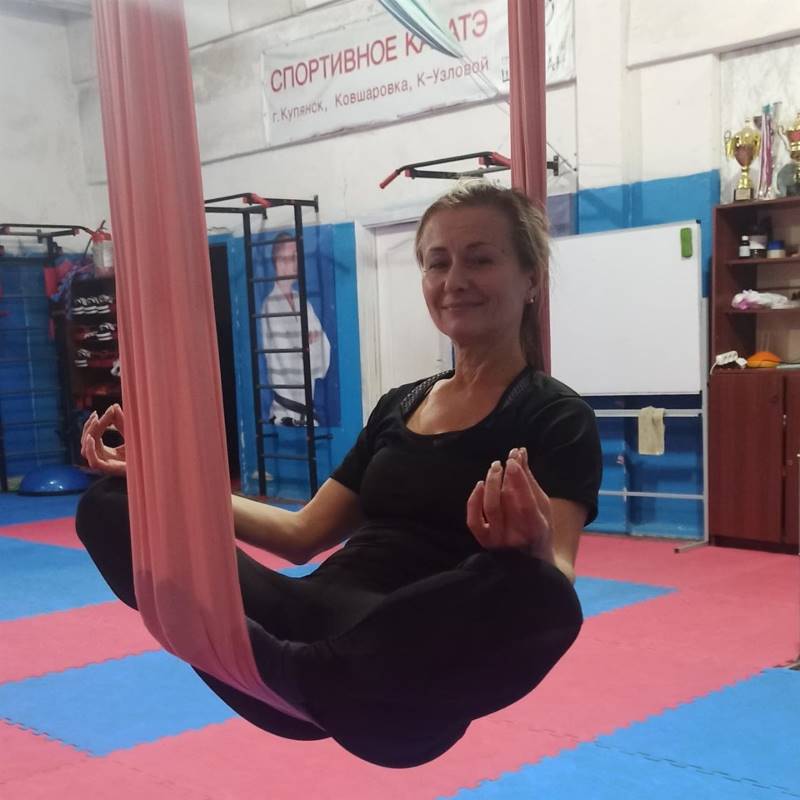
In addition to her main job, Ms. Olga teaches fly yoga
The city turned into something that the woman no longer recognized. The mayor of Kupyansk handed it over to the russians, the poster "We are one nation with russia" hung above the city hall. The police, the prosecutor's office, the court staff have all left.
"I didn't understand anything. What's next? Next we're russia? It's fine, even though my children went to the west of Ukraine. I didn't understand what independence was before. What is independence from? But now I understand. I learned the national anthem during the occupation. I went despite all that trouble to work, and mentally sang it to myself," the woman recalls.
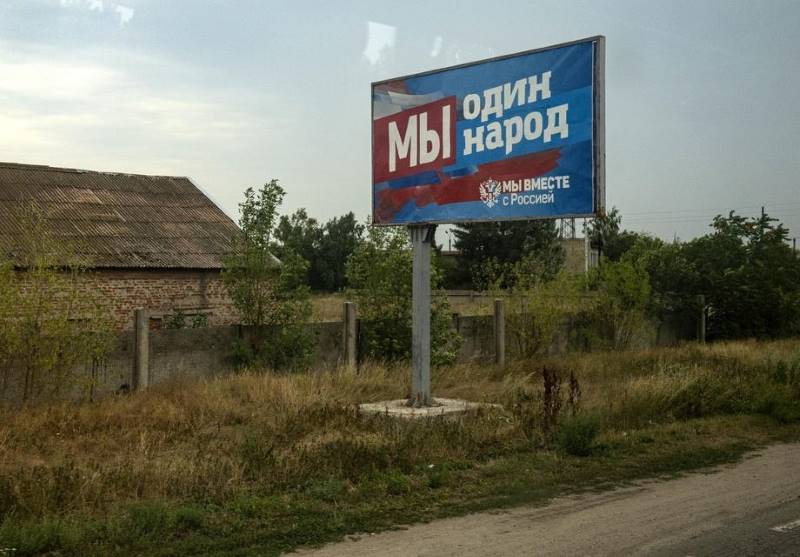
russians disgusted every corner of Kupyansk with their identity
During the occupation, the optimistic and energetic Olga fell into a pit of permanent depression. People around ceased to seem like their own- now it was unclear who among your acquaintances was a friend and who was a collaborator.
"Somehow we saw each other on the street with an acquaintance - and understood each other instantly. We talked, got angry - crying and chatting with someone close to you became a vital necessity," the woman recalls.
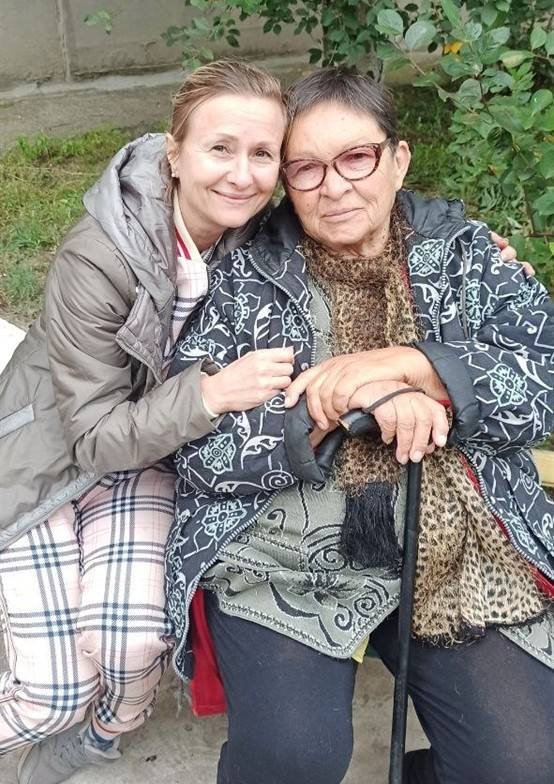
During the occupation, it was very important to find "your" people
Russian flags hung everywhere - it was important for the occupiers to hide the entire space with their symbols. Olga's favorite sports ground, previously blue and yellow, lost its yellow color - it was painted red. Once, the doctor ran into a column of russian equipment, and she she showed the middle finger to the invaders.
"I stand later and think. Olya, you are a fool. How old are you? What were you thinking?" And then it seemed to me that I could grab that tank by the muzzle, twist it and launch it somewhere far away. Miraculously, miraculously, I didn't do it," the woman recalls.
Apart from work and her parents' house, Olga could not go anywhere. Products and everything necessary was bought by a man who also stayed in the occupied city.
"I didn't see the future. It didn't exist. I didn't open my mouth at work - only tears. I got up in the morning and hated the morning for waking up," the woman recalls.
Routine psycho-neurological institution in the occupation
In the psycho-neurological institution, the routine changed: now Olga treated her patients all.
"Surgery, gynecology, teeth were pulled out - the nurses and I became all-rounders. We didn't want to go to hospitals occupied by the russians so much," the woman says.
In a few months, the psycho-neurological institution's food stocks began to melt - and Olga with nurses and orderlies had to go to the russians for the first time to get humanitarian aid for the sick. For some reason, the Rashists themselves did not enter the institution.
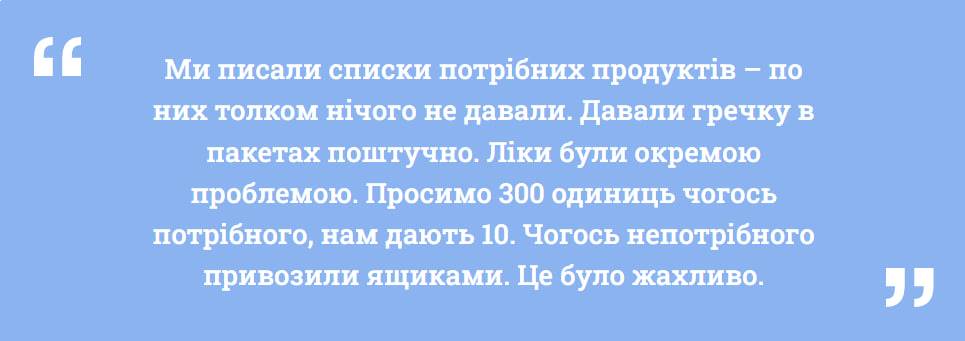
The psycho-neurological institution would be in a bad place if local businesses did not help it for free: the city had a cannery, a meat processing plant, and a fish farm. All of them gave food to the sick for free - as long as they could do it.
The situation became even more complicated when the russians destroyed a similar institution in the Izyum Oblast - and the most difficult patients were brought to Kupyansk after the bombing.
"I cannot tell the details, but I have never seen such psychiatric patients before. People were in a very bad condition - the stories of their illnesses after what happened no longer corresponded to reality," the woman recalls.
The psycho-neurological institution, designed for a maximum of 110 people, had to accommodate 150. Olga and the nurses accommodated as many as they could in the gym, rooms for 4 became for 6.
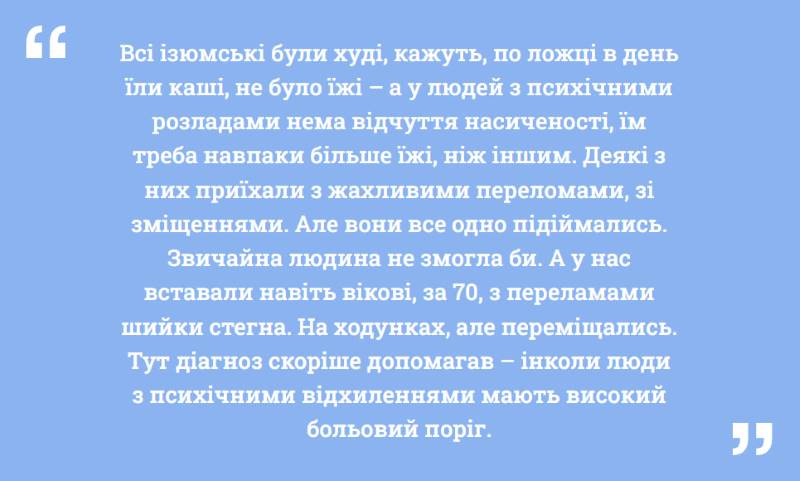
Patients built psychological "protective domes" around themselves, as Olga taught. And the doctor herself tried to keep the psycho-neurological institution afloat. The russians played with the people like a cat and a mouse - sometimes they turned on electricity for the city, then they cut it off; communication could be caught from russian maps. Olga bought an hour of communication from friends for one hundred hryvnias, so that she could at least write to her children and friends in unoccupied Ukraine - we are alive, we are holding on. We are waiting for the Armed Forces.
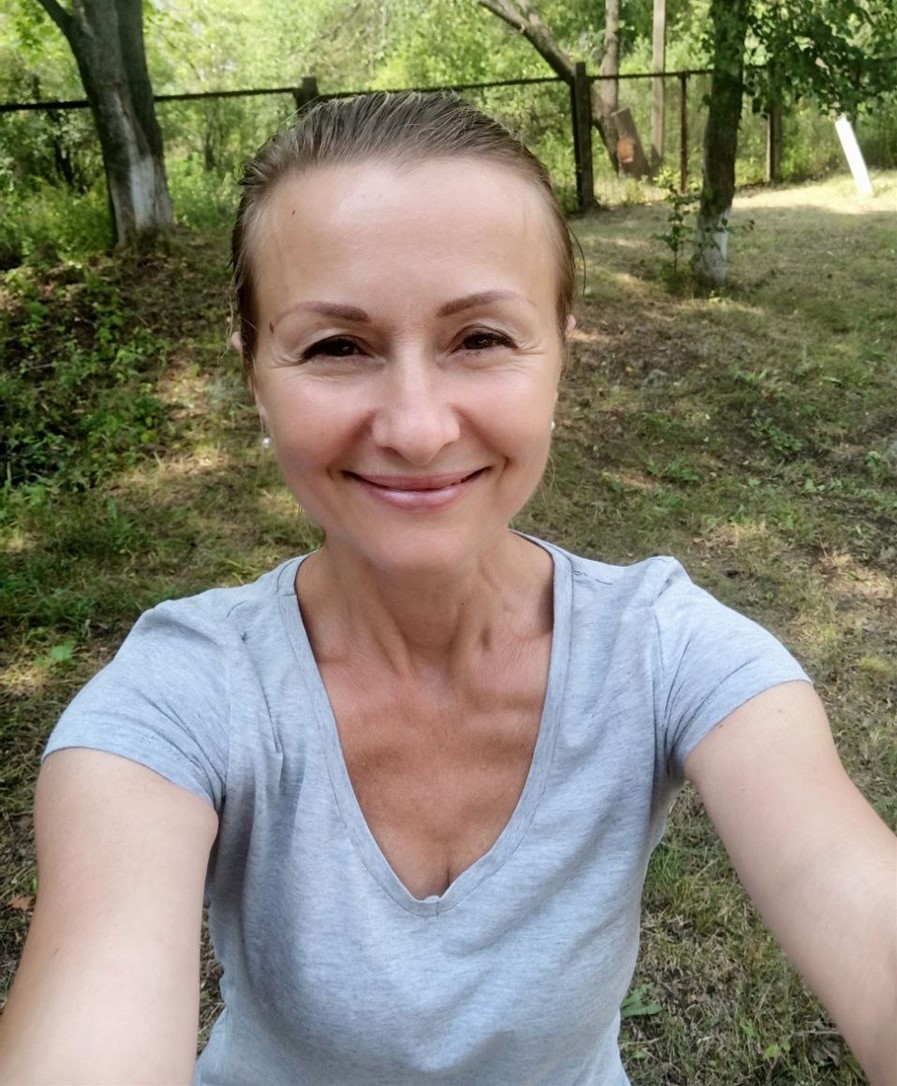
When communicating, Olga tried to smile at the children - so as not to create the impression that she had already given up
Deoccupation
At the beginning of September, Olga went to get milk. Returning from there, she noticed a sudden change - instead of cars marked with a swastika, cars with crosses appeared on the streets of Kupyanska. The woman ran home, not hearing her feet behind her.
At home, the man took her to the balcony on the third floor and said: "Look. Listen. They speak Ukrainian."
"I get goosebumps when I remember that moment - I run to the soldiers, hug them, cry and ask - just don't leave, don't abandon us," the woman recalls.
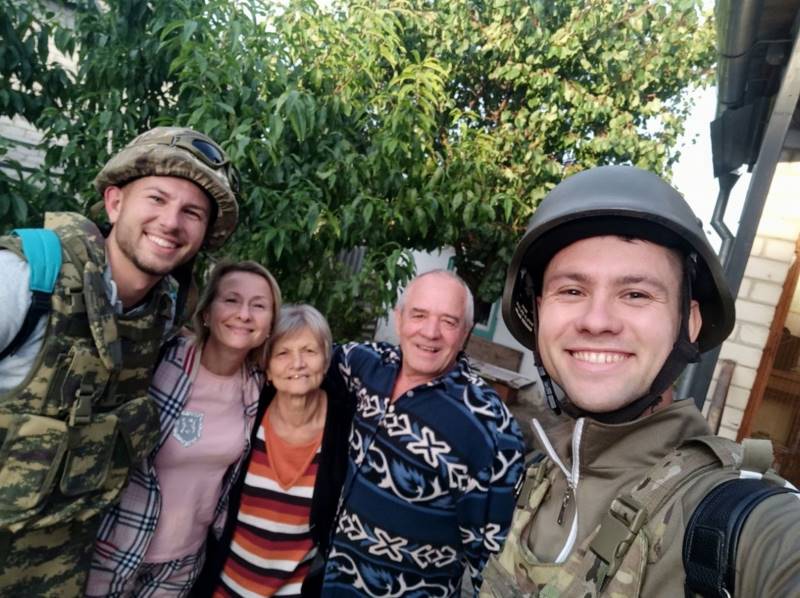
Olga Gunya, her family and soldiers of the Armed Forces of Ukraine
And from September 10, when the Armed Forces entered the city, Kupyansk began to return to life. Although in a very specific way.
"Almost immediately, the russians hit energy, gas, and communications. Everything is booming, booming, the russians are bombing us - and I'm happy. Because the Armed Forces came in," the woman says.
Olga remembers how the russian raids hit the territory of the psycho-neurological institution.
"Once, they made such a noise that they blew a hole in the roof of the dining room, and 8 windows were broken. They bombed, it's funny to say, a wooden toilet on the street. It was lucky that the main in buildings did not hit," the doctor recalls.
The de-occupation happened just in time. Literally a day before her, the psycho-neurological institution faced a problem: there was only a handful of food left for a day, if only for two weeks.
"After the liberation, volunteers from Kharkiv came to us, they brought humanitarian aid. Normal aid, not like the russians. I explained to the volunteers: "A psycho-neurological institution, 150 people, nothing to feed." And the guy told me: "Let's make a video about it. People will help you," Olga recalls.
This video became viral in the region: the psycho-neurological institution had no place to store humanitarian aid from Kharkiv residents. The doctor recalls that it was the first time in her life that she saw such help, as they were sent, sometimes in boxes of 14 kilograms each. Part of the psycho-neurological institution gave to the city - people responded so generously to the needs of patients.
"They installed a field kitchen, a generator, and the denesniks brought water. If it weren't for the russian shelling, we could have even stayed in the city," the doctor recalls.
Evacuation of psycho-neurological institution
But the lack of gas, electricity and water required the evacuation of patients.
"You can cook food on a tile, but how do you heat enough water to wash 150 people? 50 of them are lying down. The washing machines started, and after them - scabies. You ask the sick not to scratch, but it's useless. And everyone is under constant bombardment from the russian side. And there are only 3 nurses, several orderlies and me, a doctor," says Olga.
On October 16, the psycho-neurological institution was evacuated - the city's social protection department oversaw the entire process.
"We evacuated in three stages - first the bedridden, to the Bogodukhiv children's psycho-neurological institution. The second part of the patients, girls - to the Khotyn psycho-neurological institution. The boys - to the Cheresskyi, and the last batch was taken by the Zhmerynskyi and Bratslavskyi institutions. When the buses left for Kharkiv, the russians bombed - and we we drove anyway," the doctor recalls.
Now Olga works in Kyiv, also in a hospital that specializes in working with mentally ill patients.
"The wards from Kupyansk continue to call me from their new psycho-neurological institutions. I will always answer mine.
The parents are not ready to leave, even though Kupyansk has become bombed. 22 of my patients died this year. I think it's stress. And they were scared for a long time. All of us," the woman says.


